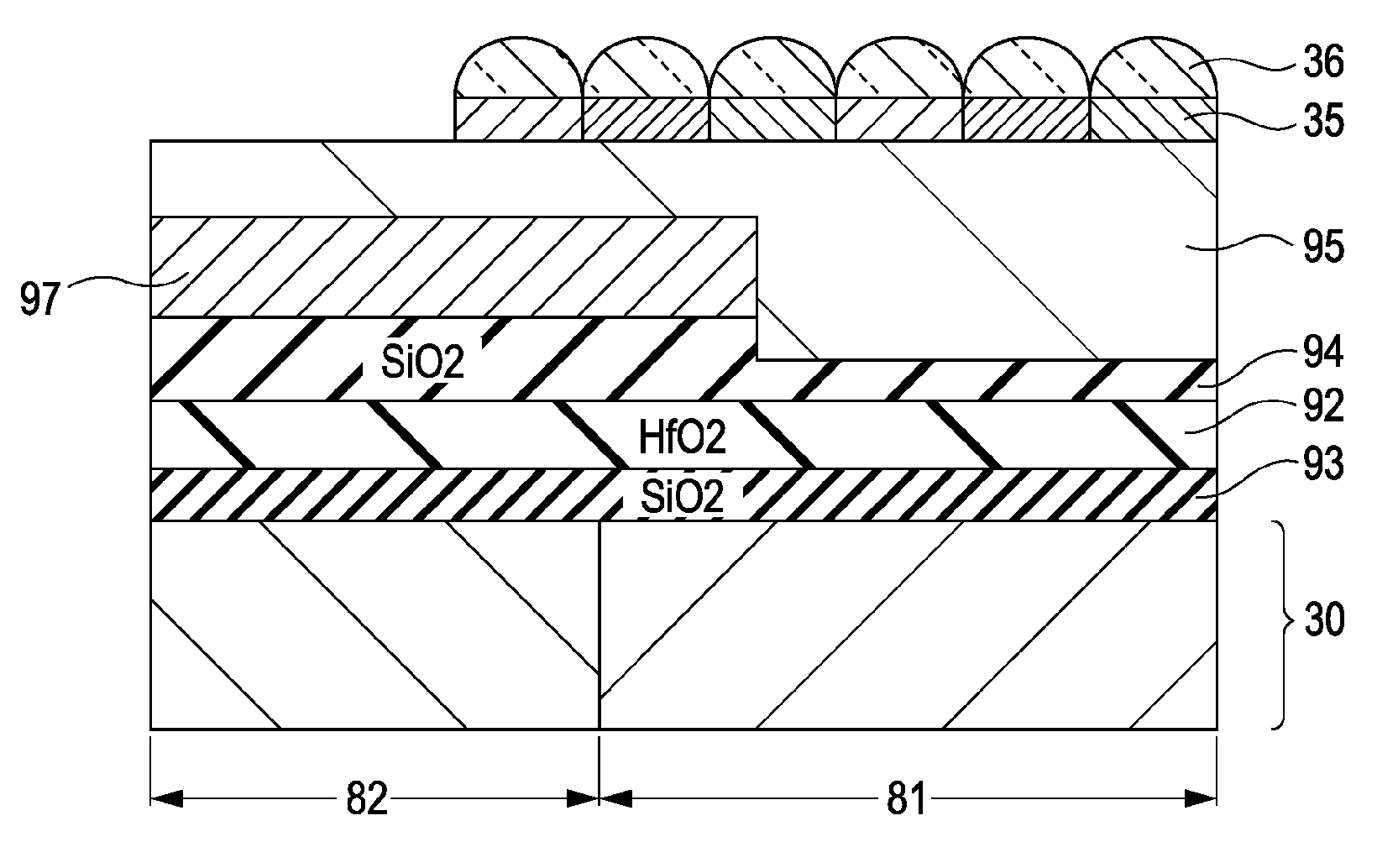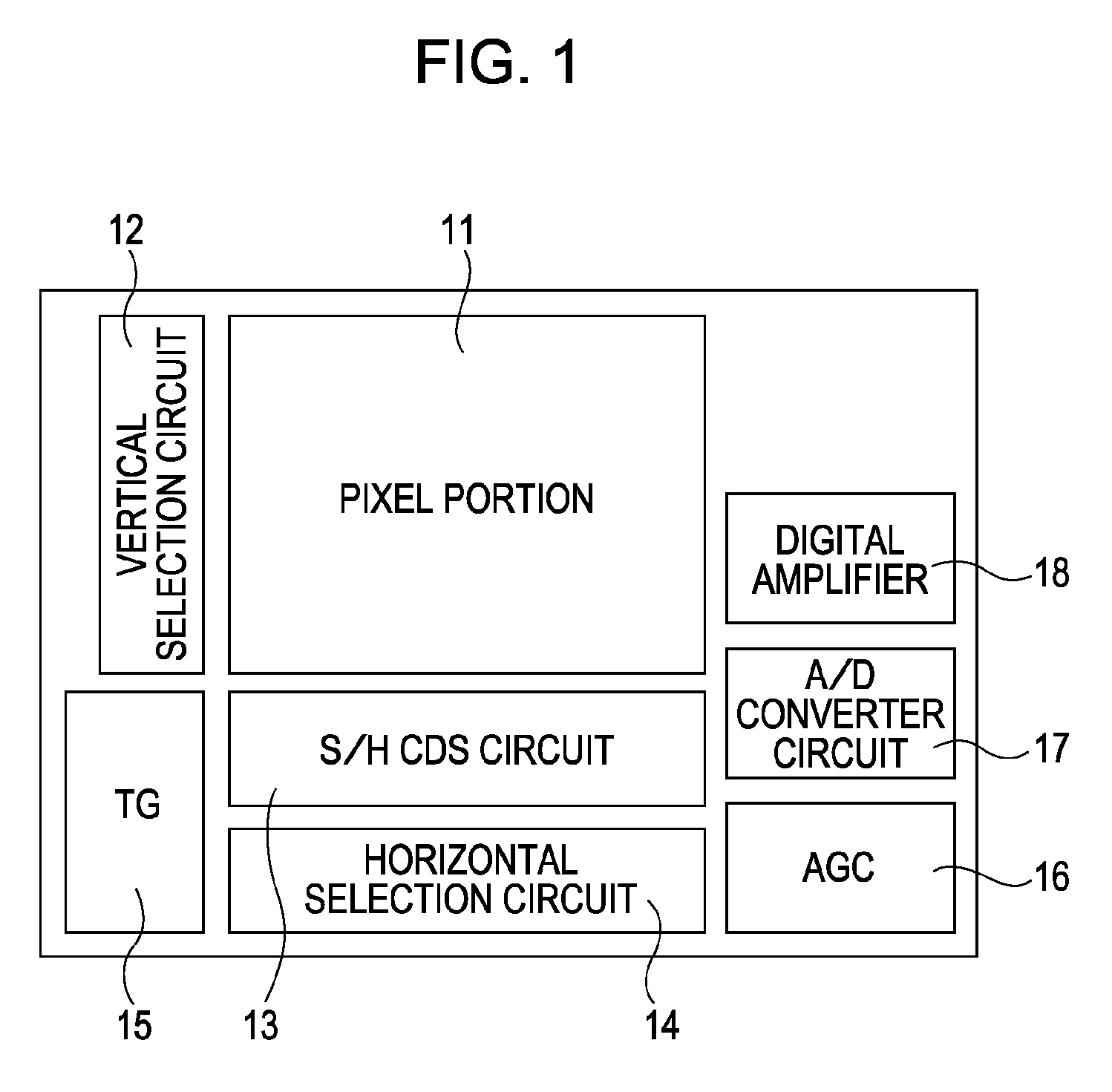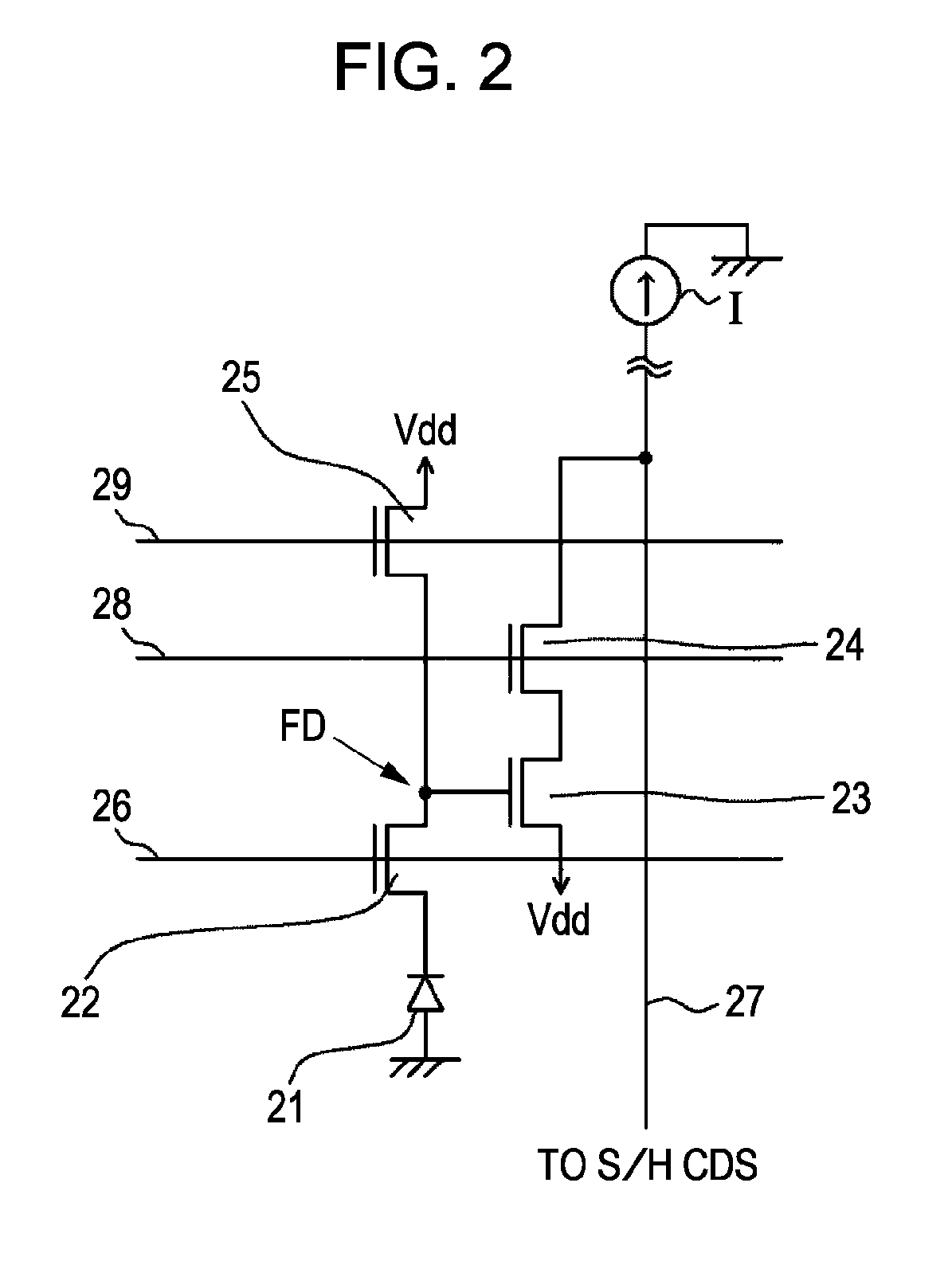Solid-state imaging device, method for producing same, and camera
a solid-state imaging and camera technology, applied in the direction of radio-controlled devices, television system scanning details, television systems, etc., can solve the problems of reducing sensitivity, difficult to form and the method of forming the p-type semiconductor region by ion implantation and annealing with activation at a high temperature for a long period of time is not desirable, so as to suppress the generation of dark curren
- Summary
- Abstract
- Description
- Claims
- Application Information
AI Technical Summary
Benefits of technology
Problems solved by technology
Method used
Image
Examples
first embodiment
[0058]FIG. 1 is a schematic block diagram of a solid-state imaging device according to an embodiment of the present invention.
[0059]The solid-state imaging device includes a pixel portion 11 and peripheral circuitry, the pixel portion 11 and the peripheral circuitry being disposed on the same semiconductor substrate. In this embodiment, the peripheral circuitry includes a vertical selection circuit 12, a sample-and-hold correlated double sampling (S / H CDS) circuit 13, a horizontal selection circuit 14, a timing generator (TG) 15, an automatic gain control (AGC) circuit 16, an A / D converter circuit 17, and a digital amplifier 18.
[0060]The pixel portion 11 includes many unit pixels that are arrayed in a matrix, as described below. Address lines and the like extend along rows of the pixels. Signal lines and the like extend along columns of the pixels.
[0061]The vertical selection circuit 12 successively selects the pixels on a row-by-row basis. The vertical selection circuit 12 reads pi...
second embodiment
[0119]FIG. 11 is a fragmentary cross-sectional view of the pixel portion of the substrate 30 of a solid-state imaging device according to a second embodiment. The same elements as those in the first embodiment are designated using the same reference numerals, and redundant description is not repeated.
[0120]Two control gates, i.e., a first control gate 52-1 and a second control gate 52-2, are formed on the first surface of the substrate 30 with a gate-insulating film (not shown) provided therebetween. The first control gate 52-1 is located between the transfer gate 51 and the second control gate 52-2. The first and second control gates 52-1 and 52-2 are superposed on the photodetector 31. The first and second control gates 52-1 and 52-2 are composed of, for example, polysilicon. Each of the first and second control gates 52-1 and 52-2 preferably has a thickness comparable to the thickness of the transfer gate 51 in view of processability and resistance. Light is incident on the secon...
third embodiment
[0134]FIG. 13 is a fragmentary cross-sectional view of the pixel portion of the substrate 30 of a solid-state imaging device according to a third embodiment. The same elements as those in the first embodiment are designated using the same reference numerals, and redundant description is not repeated.
[0135]The control gate 52 is formed on the first surface of the substrate 30 with a gate-insulating film (not shown) provided therebetween. In this embodiment, the control gate 52 partially overlaps the photodetector 31. The hole-accumulation region 44 is not formed under the control gate 52. That is, a region where only the control gate 52 is located next to the transfer gate 51 and a region where only the hole-accumulation region 44 is located are formed. Alternatively, the hole-accumulation region 44 may be formed on the entire surface of the photodetector 31. Furthermore, the control gate 52 and the hole-accumulation region 44 may be inversely arranged.
[0136]The above-described solid...
PUM
 Login to View More
Login to View More Abstract
Description
Claims
Application Information
 Login to View More
Login to View More - R&D
- Intellectual Property
- Life Sciences
- Materials
- Tech Scout
- Unparalleled Data Quality
- Higher Quality Content
- 60% Fewer Hallucinations
Browse by: Latest US Patents, China's latest patents, Technical Efficacy Thesaurus, Application Domain, Technology Topic, Popular Technical Reports.
© 2025 PatSnap. All rights reserved.Legal|Privacy policy|Modern Slavery Act Transparency Statement|Sitemap|About US| Contact US: help@patsnap.com



